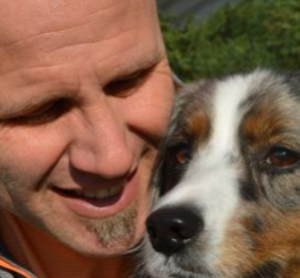
Phewwww, does your dog’s passing gas stink up an entire room? Here is how to get that undern control — by a veterinarian.
Why does your dog, though, pass gas so often in the first place?
“Flatulence comes from an excess of gases that are in the intestinal tract,” says Michel Selmer, DVM.
“These may represent air that has been swallowed; produced in the biochemical process of digestion; or diffusion from the bloodstream, or gases produced by bacteria that populate the intestinal tract.”
Dr. Selmer, who’s with The Caring Vet in NY, explains, “Over 99 percent of the gases that pass from the intestinal tract are odorless; gases with objectionable odors are typically those containing hydrogen sulfide.”
Passing gas does not mean a problem with health.
“A surprising amount of air is swallowed with the simple act of eating,” says Dr. Selmer, “and if this is not burped out, it must exit through the other end.”
Additionally, “The amount of air swallowed tends to be increased when dogs feel they must eat quickly.”
The brachycephalic breeds (such as an English bulldog or Pug) tend to use their mouth more to breathe, rather then the nose, which is short. Air that’s swallowed usually doesn’t have a bad odor.
But what about really stinky gas passing?

Shutterstock/Anatoliy Karlyuk
“The really stinky gases are produced by large intestine bacteria,” says Dr. Selmer.
“Dietary fiber in pet food is not easily digestible by the pet’s own enzyme systems; but is digested by the gas-producing bacteria of the colon.”
These fibers get broken down, producing gas. “A diet heavy in fibers tends to favor these gas-producing organisms,” continues Dr. Selmer.
“The more supportive the intestinal environment, the more bacteria there will be; ultimately more gas will be produced.”
Solution to Passing Gas Less Frequently in Your Dog
No. 1: Lower the fiber amount in the dog food. Read ingredients for anything fibrous. Check the nutrition label if a fiber content/serving is listed. Cut back on grains.
No. 2: It’ll help of your dog can eat more slowly.
Only one meal a day will cause rushed eating.
Try multiple servings but with smaller amounts; this can cut down on passing gas.
 Dr. Selmer offers conventional Western plus holistic veterinary medicine, traditional Chinese veterinary medicine including acupuncture and herbal therapy, and integrative medical care for dogs and cats.
Dr. Selmer offers conventional Western plus holistic veterinary medicine, traditional Chinese veterinary medicine including acupuncture and herbal therapy, and integrative medical care for dogs and cats.
 Lorra Garrick has been covering medical, fitness and cybersecurity topics for many years, having written thousands of articles for print magazines and websites, including as a ghostwriter. She’s also a former ACE-certified personal trainer.
Lorra Garrick has been covering medical, fitness and cybersecurity topics for many years, having written thousands of articles for print magazines and websites, including as a ghostwriter. She’s also a former ACE-certified personal trainer.
.









































